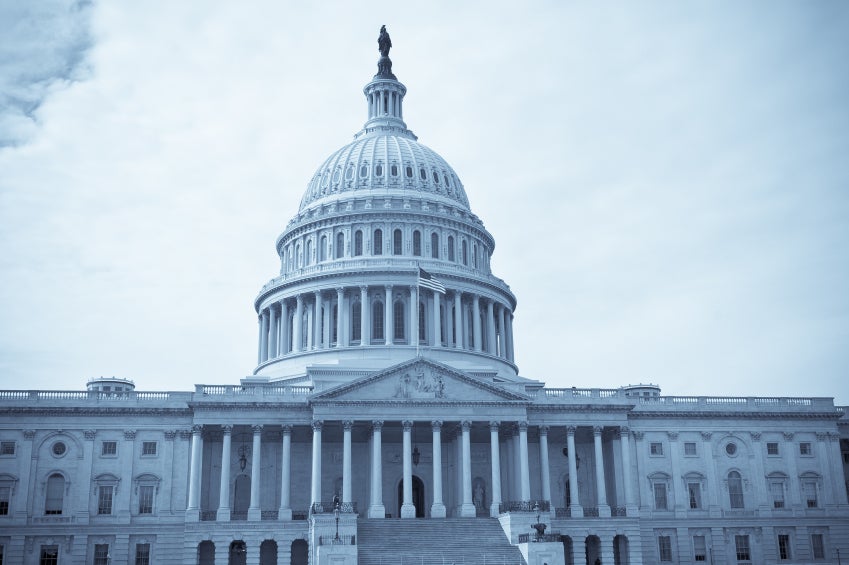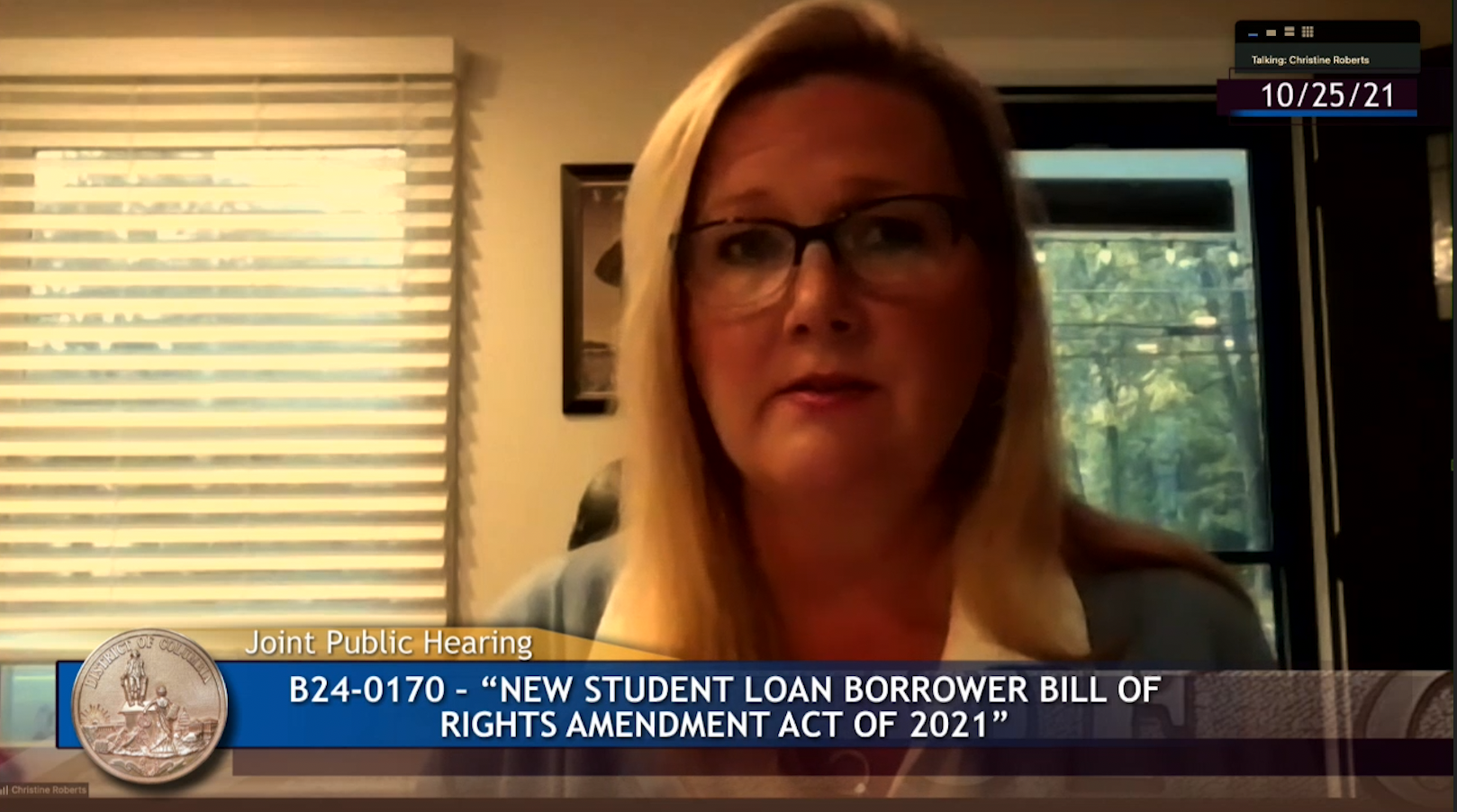CBA Letter on Draft Legislation for HFSC Hearing on Student Debt and Student Loan Servicing

September 10, 2019
The Honorable Maxine Waters
Chairman
House Financial Services Committee
2129 Rayburn House Office Building
Washington, DC 20515
The Honorable Patrick McHenry
Ranking Member
House Financial Services Committee
2129 Rayburn House Office Building
Washington, DC 20515
Dear Chairman Waters and Ranking Member McHenry:
On behalf of the Consumer Bankers Association (CBA), I would like to share these additional views on draft legislation under consideration in the September 10, 2019, Committee hearing, “A $1.5 Trillion Crisis: Protecting Student Borrowers and Holding Student Loan Servicers Accountable.” CBA serves as the voice of the retail banking industry, and its membership includes the private sector lenders who make the majority of non-federal, private student loans to help families finance a postsecondary education.
The Student Loan Servicing Reform and Consumer Protection Act
CBA strongly opposes the discussion draft Student Loan Servicing Reform and Consumer Protection Act as it is duplicative of a long-standing regime of student loan legislation and regulation governing federal student loans and private education loans. Federal student loan servicing is already subject to requirements of the Higher Education Act, regulations promulgated by the Department of Education and federal contracts between the Department and its servicers. Similarly, private student loans are subject to long-standing requirements of the Truth in Lending Act (TILA) and to rules promulgated by prudential regulators, the Department and the CFPB. This proposed legislation is duplicative and would unnecessarily complicate the origination and servicing of student loans.
The Fair Credit Reporting for Student Loans Act
CBA opposes the discussion draft of the Fair Credit Reporting for Student Loans Act because it imposes new restrictions on the credit bureau reporting process that would impair financial institutions’ ability to accurately underwrite the loans that they make. Limiting access to information in the underwriting process diminishes lenders’ ability to accurately evaluate risk and creates potential harm for both consumers and institutions’ safety and soundness. The proposal also gives new and duplicative authority to the CFPB to issue overlapping rules and standards relating for information collected by consumer credit reporting agencies. Credit bureau reporting of student loans, federal and private, is already extensively mandated and performed by lenders and servicers, who are continually working together through existing procedures to improve reporting standards for the benefit of lenders and consumers.
The Ensuring Fair Legal Recourse for Private Student Loan Borrowers Act
CBA opposes the discussion draft Ensuring Fair Legal Recourse for Private Student Loan Borrowers Act as it unnecessarily hinders contract terms between borrowers and private lenders. Pre-dispute arbitration and joint-action waivers help reduce the cost of providing private student loans and there has been no showing that borrowers have been adversely impacted by these standard loan terms in the private loan marketplace. The CFPB itself found in a 2015 study that arbitration is consistently faster and less expensive than litigation, and results in significantly higher returns for consumers.[1]
The CFPB Student Loan Integrity & Transparency Act
CBA applauds the Administration for recently filling the role of CFPB student loan ombudsman and believes it should remain separate from the section for students and young consumers. Through responsible lending practices and a 98 percent repayment rate, private student loans set students up for success. CBA believes there is a role for the federal government to help families most in need, but the current system of unlimited federal lending has led to increased tuitions and double-digit default rates. While the CFPB notes the position title is Private Education Loan Ombudsman, it is clear the problem is with the federal student loan program, and the ombudsman should focus on implementing needed improvements there. CBA opposes the consolidation of the roles of the CFPB Student Loan Ombudsman and Section Chief For Students & Young Consumers. An ombudsman should be impartial and serve in a confidential capacity, while a division head at the agency is a policy maker, enacting rules or recommending enforcement by the agency. CBA strongly recommends the Bureau separate the positions.
The Know Before You Owe Private Education Loan Act
CBA opposes the proposed Know Before You Owe Private Education Loan Act in its current form because it would impose an unnecessary burden on institutions by requiring them to duplicate disclosures that private education loan lenders already are required to make repeatedly under the Truth in Lending Act (TILA). Private lenders are already required by the TILA to notify borrowers of interest rate, fees, monthly payment, total cost of the loan, and annual percentage rate (APR) in a clear and concise manner on three separate occasions before originating a loan to help improve transparency and prevent over-borrowing. CBA supports the requirement that such disclosures be made, but strongly recommends that rather than requiring institutions to repeat them a fourth time, the institutions provide the same disclosures about federal student loans. Among TILA disclosures private lenders already make is a notification to potential borrowers that they should check their federal aid options. An additional requirement on institutions to discourage private loans may steer students away from private options that may be better for them and is not in the consumer’s best interest.
Federal student loans do not offer clear and concise disclosures, and borrowers need to read through pages of complicated and confusing language that fails to provide terms specific to individual borrowers. Instead, they give broad categories of interest rates, fees, and estimated monthly payments, and lack information on the total cost of the loans. If Congress would like to help the student debt crisis by way of increased student loan disclosures, it should focus these efforts on federal loans, such as with the bipartisan Student Loan Disclosure Modernization Act introduced by Representatives Emanuel Cleaver (D-MO) and Jim Banks (R-IN), and which is discussed in the above letter. It would make some of these needed improvements to student loan disclosures. The bill would improve the Department of Education’s inappropriately named Plain Language Disclosure by clearly explaining the costs and terms of federal student loans to help borrowers better understand their loan commitments and increase their prospects of successfully repaying.
The Private Loan Disability Discharge Act
CBA bank lenders currently forgive the loans of borrowers with total and permanent disabilities and find this proposed legislation unnecessary. In addition, due to the construction of the legislation we are concerned this bill would complicate an already working process related to disability discharge that banks utilize.
CBA member institutions meet the demand of students in need of education funding by utliziing high underwriting standards, multiple disclosures and establishing an ability to repay – enabling banks to realize a 98% student loan repayment rate. By contrast, the federal student loan program has a much higher default rate with 1 in 5 borrowers seriously delinquent or in default, holds 92% of the student loan debt and provides very little assistance to borrowers by way of know before you owe disclosures that will ensure they understand the terms of the loan. Thank you again for your consideration of our views, and we remain eager to work with the Committee to improve outcomes for student loan borrowers.
Sincerely,
Richard Hunt
President and CEO
Consumer Bankers Association
[1] CFPB, Arbitration Study: Report to Congress, pursuant to Dodd-Frank Wall Street Reform and Consumer Protection Act § 1028(a) (Mar. 2015), available at https://www.consumerfinance.gov/data-research/research-reports/arbitration-study-report-to-congress-2015/.



